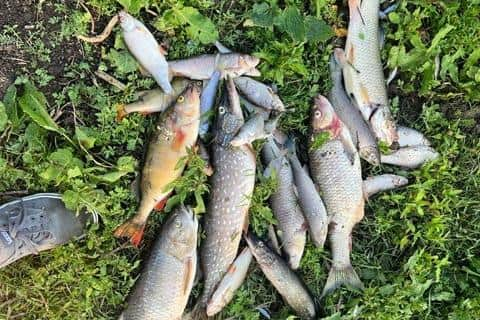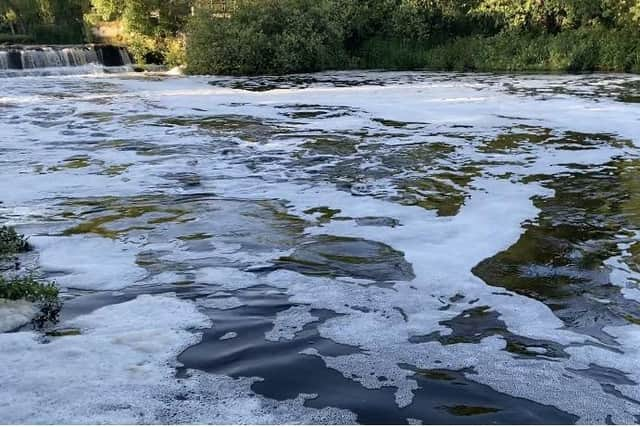Warwick section of River Avon could be restocked after hundreds of fish deaths
and live on Freeview channel 276
Fish could be restocked into a stretch of the River Avon near Warwick after hundreds died there recently.
An Environment Agency (EA) fisheries officer has attended the two-mile stretch of the river between Saxon Mill and Wasperton below Barford and ran some tests after anglers raised concerns that the water had been polluted.
Advertisement
Hide AdAdvertisement
Hide AdBarford Angling Association member Craig Harrison had raised the alarm with the Government Agency after he and fellow anglers had seen hundreds of dead fish in the water and strange foam on its surface earlier this week.


He said: “The officer surveyed the fish kill and carried out water testing for dissolved oxygen, water temperature and ammonia.
"The results were OK.
“They will electro-fish river at Barford in a few weeks-time when water temperatures drop and remaining fish have recovered to assess stocks.
"The EA officer was a pleasant and knowledgeable person that had obviously had a very stressful week.


Advertisement
Hide AdAdvertisement
Hide Ad"Barford Angling Association members pass on their thanks for the visit.”
Mr Harrison had said he feared it could take up to ten years before the number of fish returns to its previous level before the incident.
He said: “We have been promised a restocking programme to start at the end of this year.
"But the EA’s Calverton fish farm, the only official site for restocking UK rivers - is under considerable pressure.
“This will be a five-year minimum recovery program.”
Advertisement
Hide AdAdvertisement
Hide AdThe EA has said that the recent storms washing material into the river and dry spell both reducing oxygen levels in the water was the likely reason for had caused the number of fish deaths.
Mr Harrison said: “There was obviously nothing within the EA’s power to prevent the fish kill.
“There was a ‘perfect storm’ of contributory events that led to the fish kill – low water levels, high temperatures, low dissolved oxygen levels, thunderstorms creating urban and agricultural run-off of pollutants into the river catchment area.
“However, we still maintain that there was definitely a further contributory cause to this event.
Advertisement
Hide AdAdvertisement
Hide Ad"We experience these conditions on several occasions every year without loss of any fish stock what-so-ever.
"Whether this was from industrial, agricultural or sewage works origin will never be known.
“The EA response, while being both professional and thorough, was too late to capture the necessary water testing evidence to determine the actual cause of the event.”
An EA spokeswoman told The Courier that summer can be a busy time for staff responding to many reports of fish in distress.
Advertisement
Hide AdAdvertisement
Hide AdThey added: "Prolonged warm weather followed by intense summer rainstorms, such as those experienced across the Midlands recently, can wash material into watercourses which can build up on roads and in gullies.
"Once in a watercourse, this material will further deplete the water of oxygen, and can lead to serious fish mortalities.
“We are currently assessing each report to see what action can be taken and are providing advice as required.
"Our teams are monitoring the watercourses and our officers are providing remediation advice to fishery owners."
People can report distressed or dead fish by calling 0800 80 70 60.
